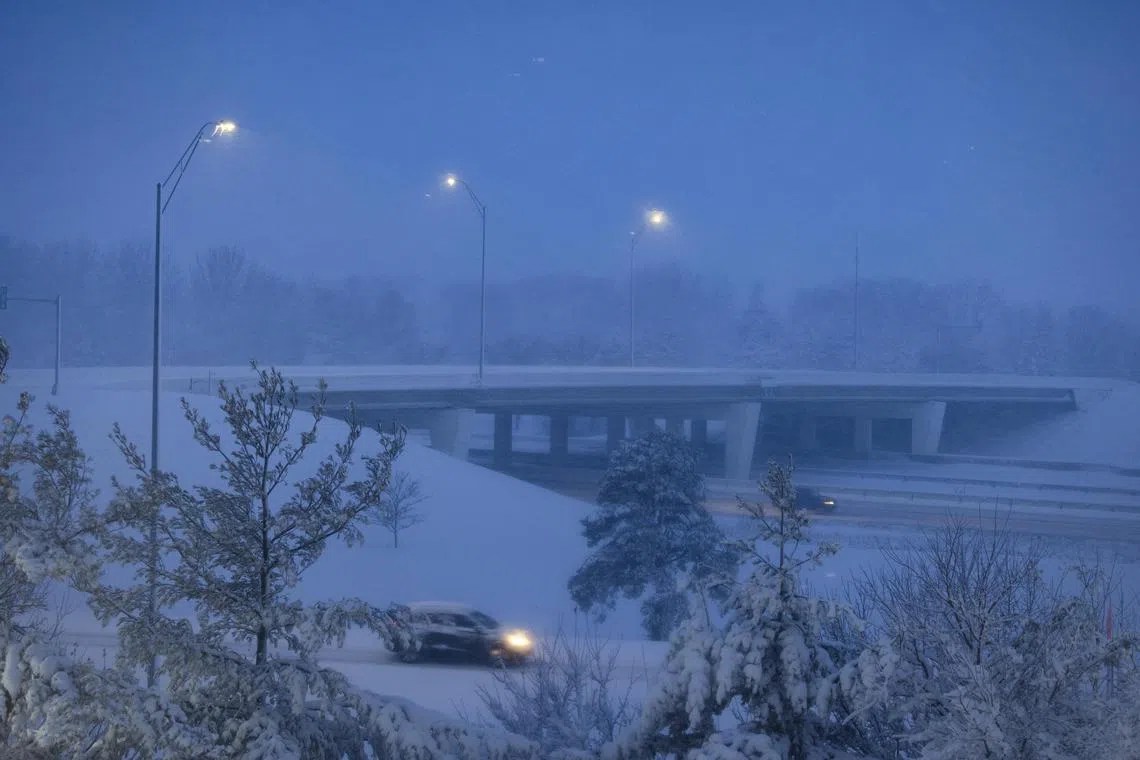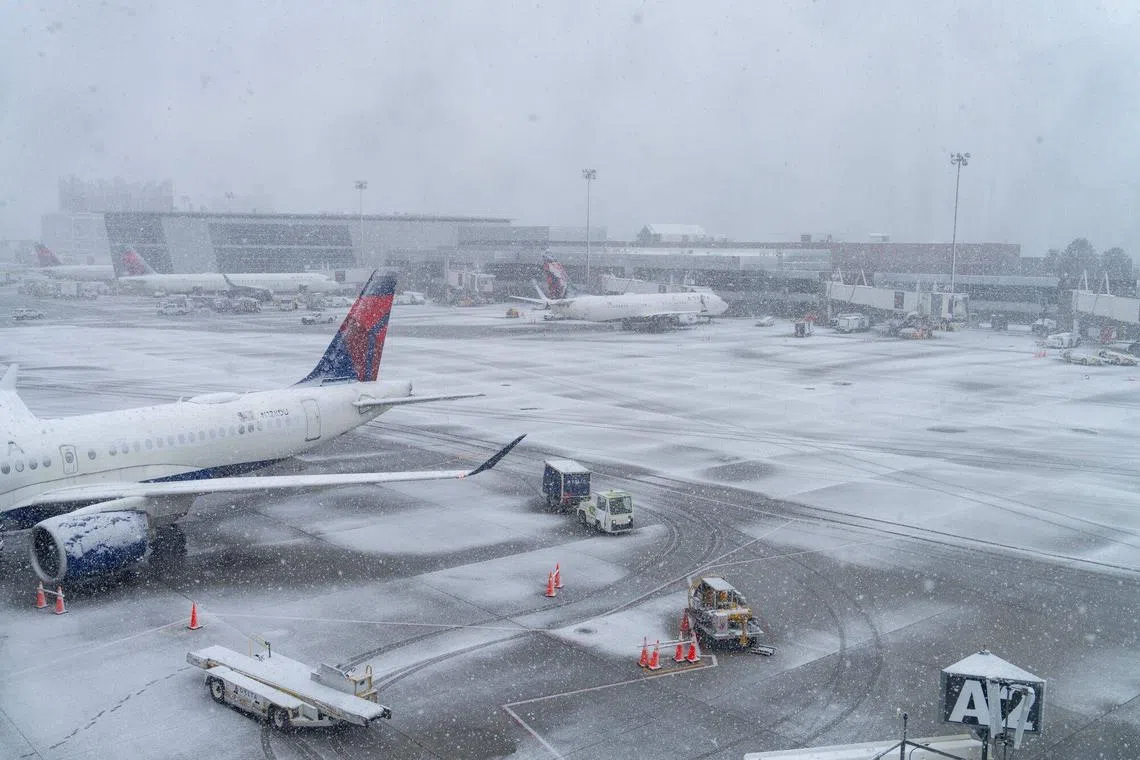Three killed as storms and likely tornadoes tear through south-east US
Sign up now: Get ST's newsletters delivered to your inbox

A resident checking a collapsed roof after a line of storms roared through the area of Perdido Key near Pensacola, Florida, on Jan 9.
PHOTO: REUTERS
WASHINGTON - At least three people died as severe thunderstorms, powerful winds and apparent tornadoes ripped across swaths of the south-east United States on Jan 9, downing power lines and trees and damaging buildings.
Images circulating online from Panama City, Florida, showed homes whose roofs had been torn off, flattened buildings and impassable roadways after a reported tornado tore through the area early on Jan 9. In some areas north of the Alabama state line, storms brought hail the size of baseballs.
One person was killed and two others were critically injured after a strong storm moved through a mobile home park in Claremont, North Carolina, just after noon on Jan 9, according to officials in Catawba County.
In Houston County, Alabama, an 81-year-old woman was killed when her mobile home was lifted off its foundation, the authorities said. And in Clayton County, Georgia, south of Atlanta, one person was killed when a tree fell across a car’s windscreen.
Severe weather was expected to continue along much of the East Coast through the night of Jan 9. More than 22 million people are under tornado watches from Florida to Virginia, AFP reported.

Vehicles navigating snowy roads during a blizzard in Waukee, Iowa, on Jan 9.
PHOTO: EPA-EFE
Heavy rain leading to flash flooding, severe winds gusting in places to more than 80kmh, and thunderstorms were predicted from the “western Carolinas to the Mid-Atlantic and North-east”, the National Weather Service said.
“Do not underestimate this one,” warned New Jersey Governor Phil Murphy in an interview with local media, predicting the worst of the weather would arrive there by later on Jan 9 and overnight.
He described the storm as “unusual”, citing up to 10cm of rain in January 2024 and high winds gusting along the shoreline.
Tornadoes were predicted in the south-east, with some already ripping through the Florida panhandle, where drone images showed downed trees and damaged buildings with roofs torn off.
Florida Governor Ron DeSantis, a Republican presidential candidate, issued a state of emergency across 49 counties.

The weather had a heavy impact on flights, with more than 900 cancelled and 5,300 delayed in the US on Jan 9.
PHOTO: BLOOMBERG
More than 380,000 customers had already lost power in the US by the afternoon of Jan 9, mainly in the south-east, according to monitoring website Poweroutage.us.
“Wintry precipitation around the system would also lead to heavy snow in parts of the upper Midwest and the Great Lakes region,” the weather service said.
In the north-west, the first blizzard warnings in a decade were issued for the Cascade and Olympic mountains, according to The New York Times.
The weather was already having a heavy impact on flights,
Some of the cancellations were due to the grounding of some Boeing 737 Max jets for inspection after a panel ripped off an Alaska Airlines plane
US beef output slumps
The severe weather is hampering meat production in the US, with two of the biggest beef packers idling Kansas slaughter plants as blizzard conditions swept through the region this week, Bloomberg reported.
Cargill’s plant in Dodge City, Kansas, suffered a partial power outage, and 50 workers were temporarily stranded at the plant on Jan 8 due to a road closure. The plant will be reopened when power is restored and it is deemed safe for workers. Tyson Foods also had a plant impacted in the state.
“We realise that some employees got stuck on the road outside the plant. We are working with local authorities and have hired tow truck drivers to assist them and other motorists,” Cargill said in a statement.
Tyson Foods cancelled two shifts at its beef plant in Holcomb, Kansas, on Jan 9, the company said in a statement. Employees on Jan 8 were offered hot meals and a place to seek shelter amid dangerous travel conditions.
Meanwhile, scientists say that as humanity continues to warm the planet by burning fossil fuels, weather patterns will become more unpredictable. That will mean wetter and more powerful storms, along with hotter, drier periods that will strain our water resources. NYTIMES, AFP, BLOOMBERG


